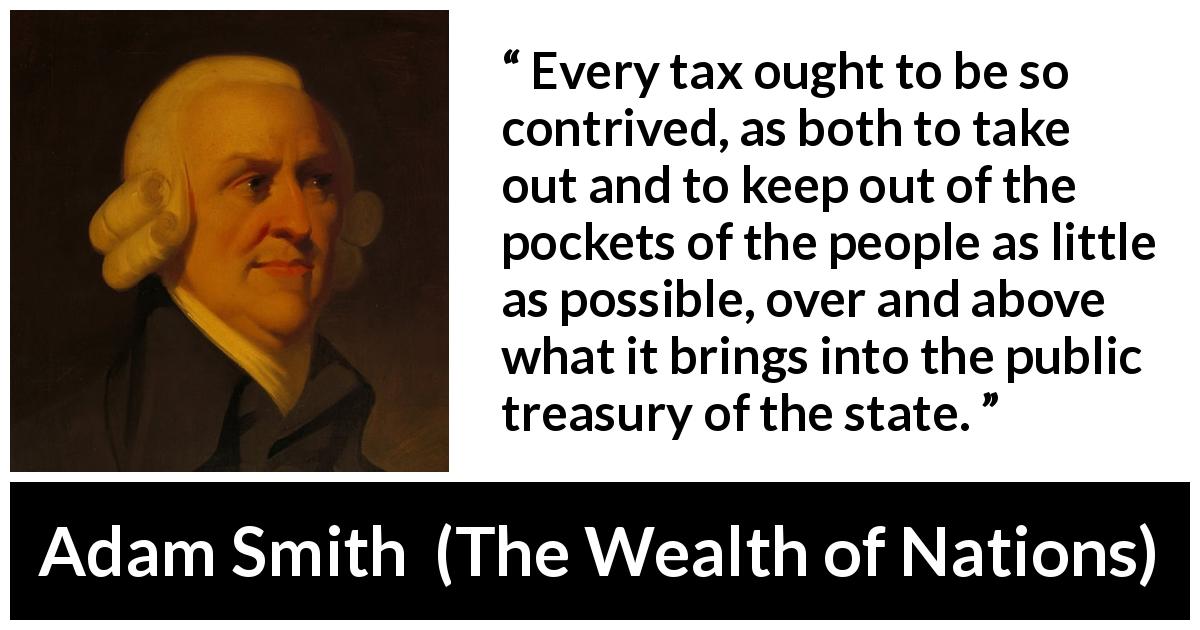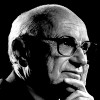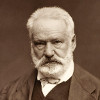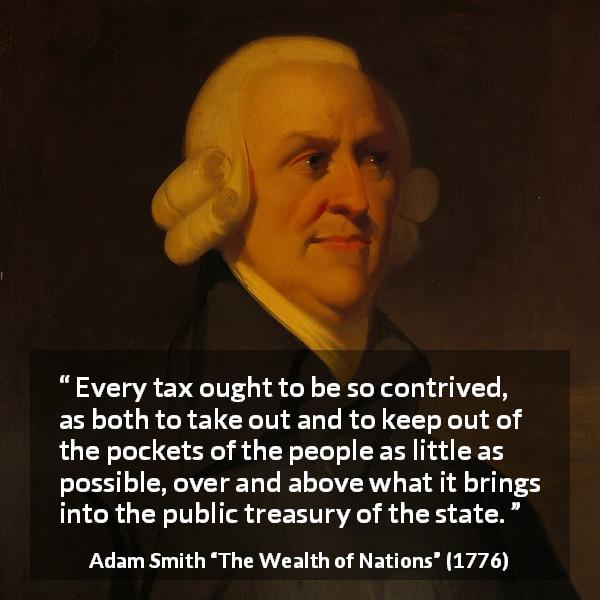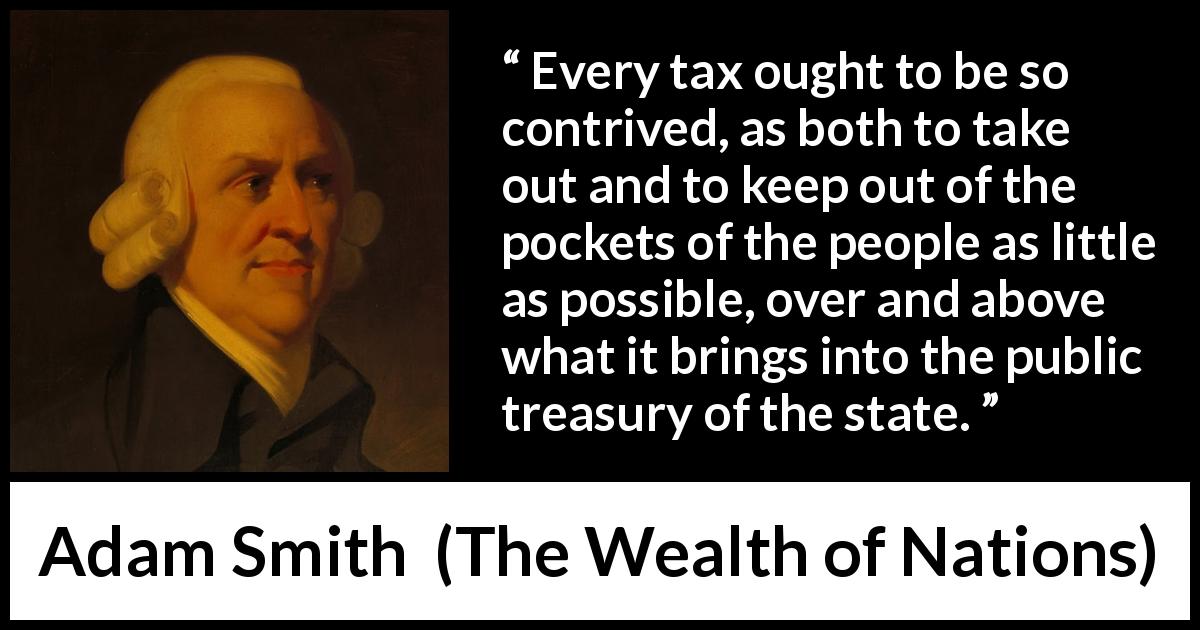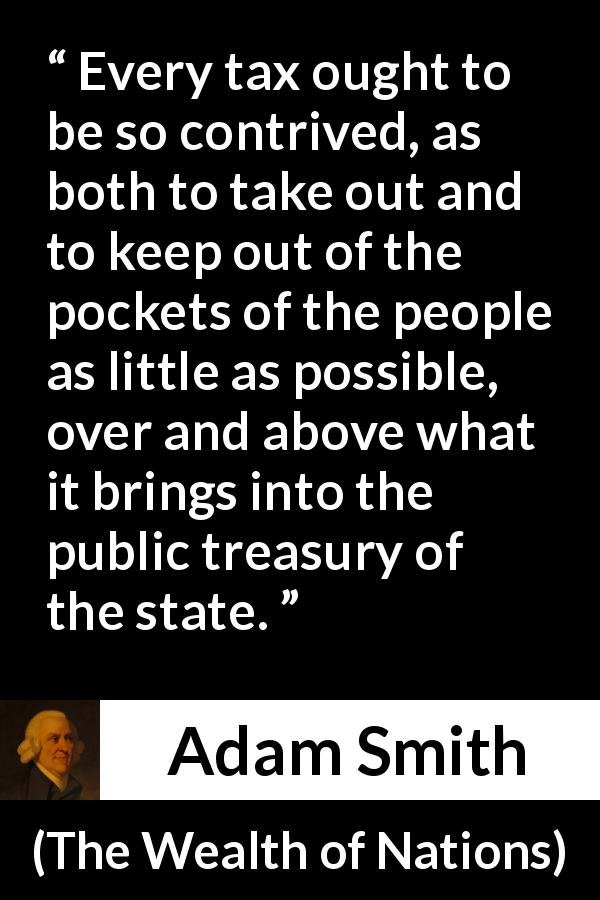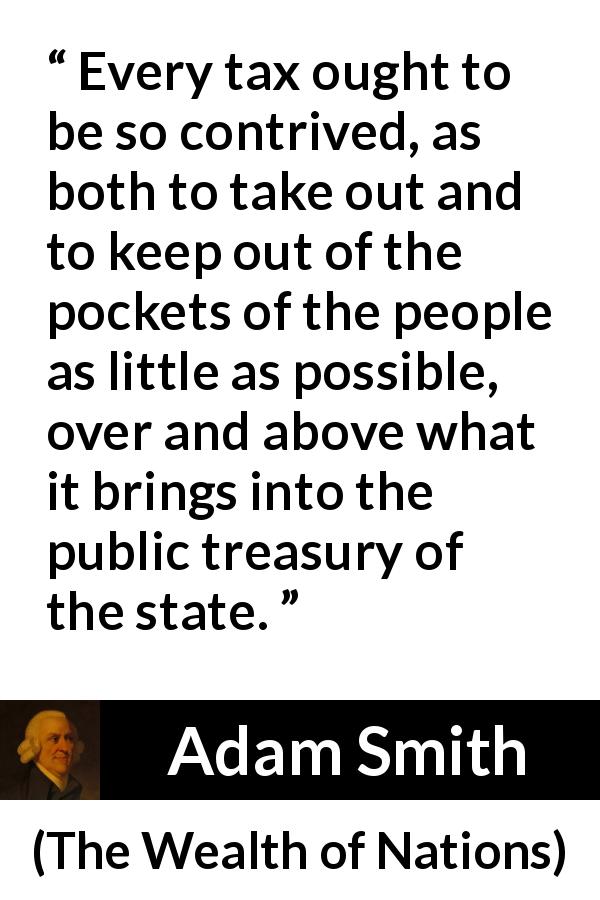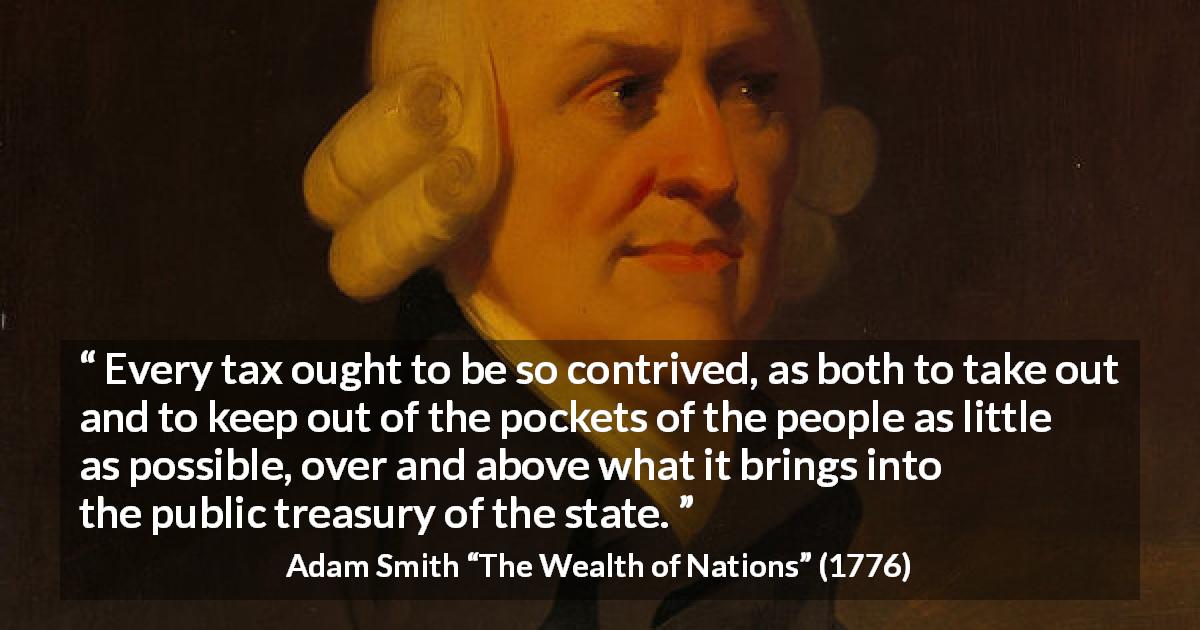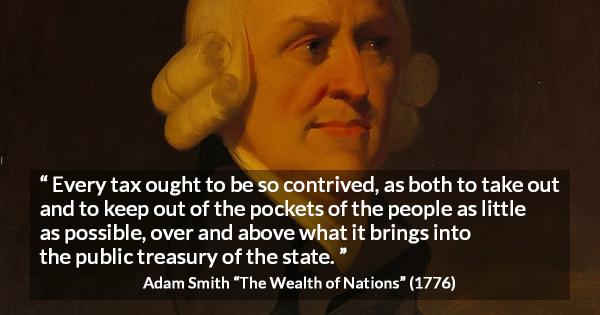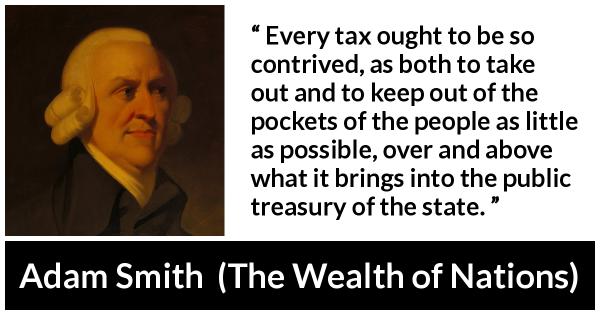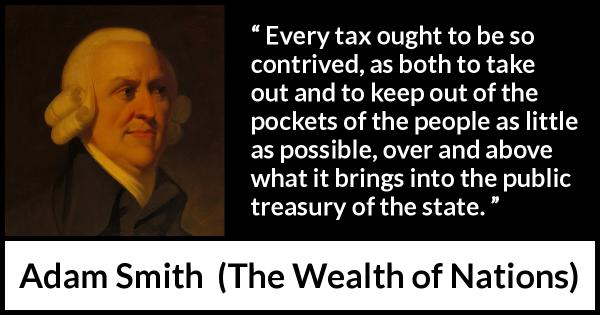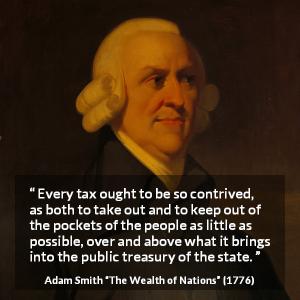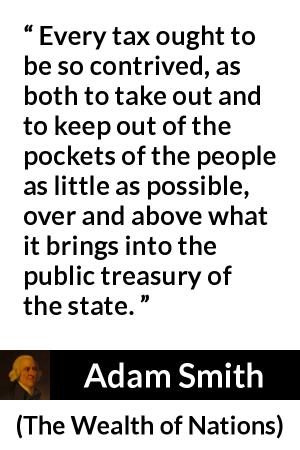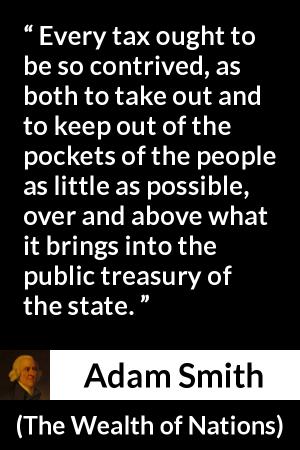“ Every tax ought to be so contrived, as both to take out and to keep out of the pockets of the people as little as possible, over and above what it brings into the public treasury of the state. ”
Adam Smith, The Wealth of Nations (1776). copy citation
| Author | Adam Smith |
|---|---|
| Source | The Wealth of Nations |
| Topic | people state tax |
| Date | 1776 |
| Language | English |
| Reference | An Inquiry into the Nature and Causes of the Wealth of Nations |
| Note | |
| Weblink | http://www.gutenberg.org/files/3300/3300-h/3300-h.htm |
Context
“He pays them by little and little, as he has occasion to buy the goods. As he is at liberty too, either to buy or not to buy, as he pleases, it must be his own fault if he ever suffers any considerable inconveniency from such taxes.
4. Every tax ought to be so contrived, as both to take out and to keep out of the pockets of the people as little as possible, over and above what it brings into the public treasury of the state. A tax may either take out or keep out of the pockets of the people a great deal more than it brings into the public treasury, in the four following ways. First, the levying of it may require a great number of officers, whose salaries may eat up the greater part of the produce of the tax, and whose perquisites may impose another additional tax upon the people.” source
4. Every tax ought to be so contrived, as both to take out and to keep out of the pockets of the people as little as possible, over and above what it brings into the public treasury of the state. A tax may either take out or keep out of the pockets of the people a great deal more than it brings into the public treasury, in the four following ways. First, the levying of it may require a great number of officers, whose salaries may eat up the greater part of the produce of the tax, and whose perquisites may impose another additional tax upon the people.” source
